12/22/23 to 1/12/24
Our flexibility was required, even though it is known that this decreases significantly with increasing age! The helpfulness and hospitality of the Iranians also overwhelmed us in the second half of the trip.
Accident in Iran
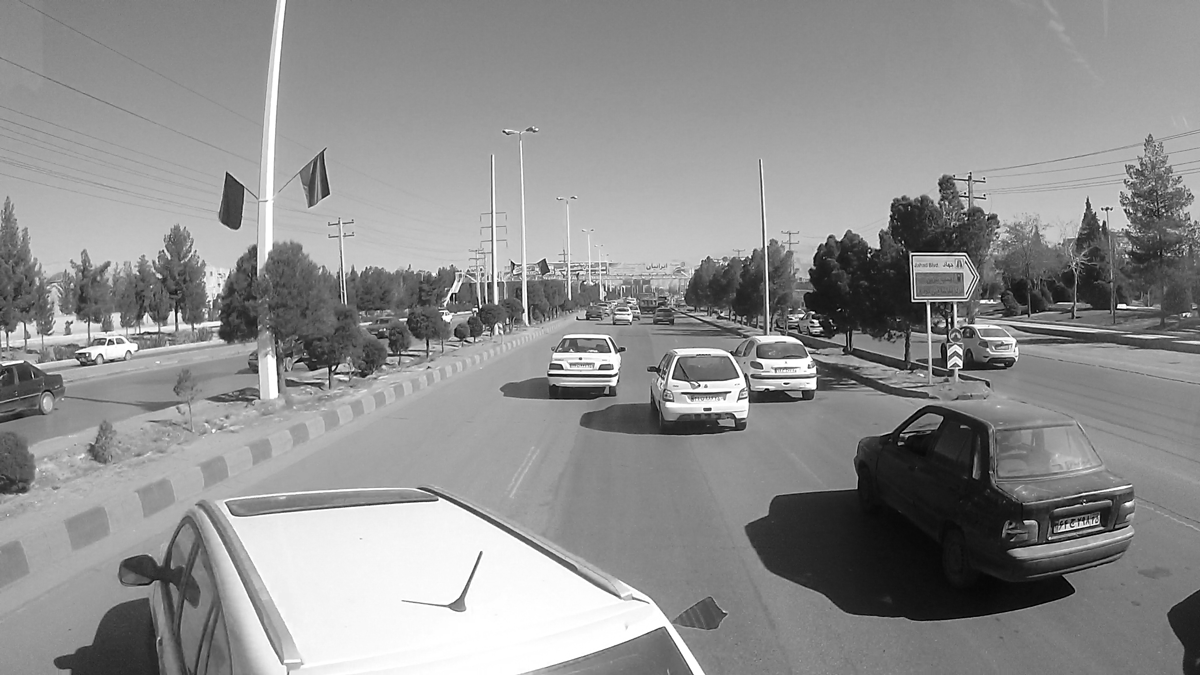
The arterial roads in Iranian cities usually have three to five lanes, which is very spacious by European standards. We leave the city of Kerman on such a road in the middle lane. I usually drive in the middle lane because the right lane is often used for short-term parking or for slow-moving people making turns and the right lane should be free for U-turns. At a junction with a service road, also with multiple lanes, a small SUV rushes through from behind Globi on the right to get into the far-left lane. He drove up in the blind spot and tried to cross both lanes so close to Globi that he couldn’t do it without a collision. He was kissed by Globi’s winch. Well, the winch didn’t suffer any visible damage, but the SUV almost tipped over and was clearly wrecked. There was a young family with a small child in the car. The child was obviously thrown out of the child seat (the attachment was questionable) due to the impact and landed on the floor behind the seats. This really frightened the mother, and she probably insulted me because of it. Luckily, I didn’t understand anything and nothing happened to the child. Of course, the father didn’t want to take any blame and so we called the police, which could possibly be a problem for us tourists. But, thanks to the dashcam, we have a video of the accident! After about an hour the police came, listened to the SUV driver’s explanation, assessed my damage, and explained the SUV driver that he was completely at fault and let us go. We were extremely positively surprised and extremely happy with the police officer’s fair actions.
.
Happy moment
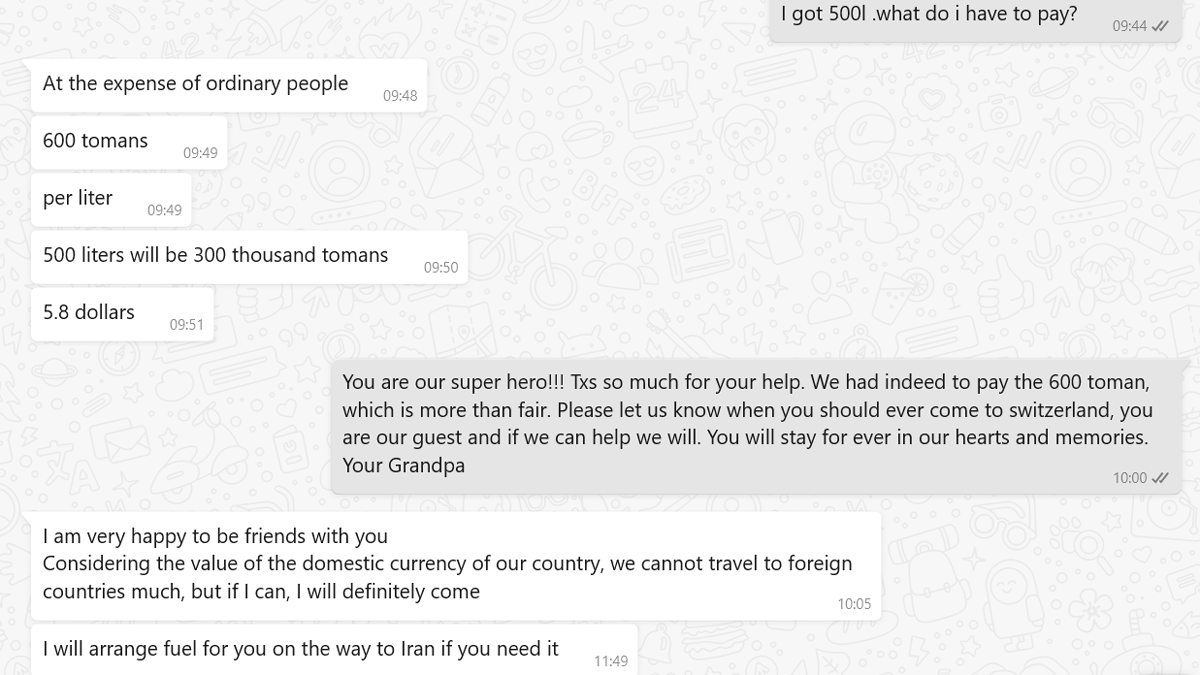
Near the border to Pakistan and the Emirates, there is simply no more diesel in a country that can hardly sell its oil. Either the gas station doesn’t have any diesel at all, or the gas station attendant doesn’t have his own diesel card to sell diesel to tourists, both of which are extremely bad for us. A young professor from Kerman who follows us on Insta asked us if we were happy in Iran and if we needed anything. We told him about our problems with the diesel and he promised to help us. At that point we had already been away from Kerman for several days and were wondering how he wanted to do it. A few hours later we received a WhatsApp from him saying that he had reserved 500 liters of diesel for us 50km north of us and we could pick them up there! We were very surprised and happy and drove to the gas station the next day. The gas station was closed, no diesel. I talked to the team, who were comfortably gathered in the office for tea and a chat. I explained my concerns in fluent Persian. They laughed at me kindly and sent me away. However, an employee still made a phone call and then explained to me that I should simply drive through the gas station exit and drive, so to speak, from the back to the gas pump. We received 500 liters of diesel from a gas station that was closed, and which sent all the other local truck drivers away. The highlight was that we only had to pay the tourist price for the 500 liters. We are fans of the young professor from Kerman and impressed by his organizational skills and his relationships!
Encounters
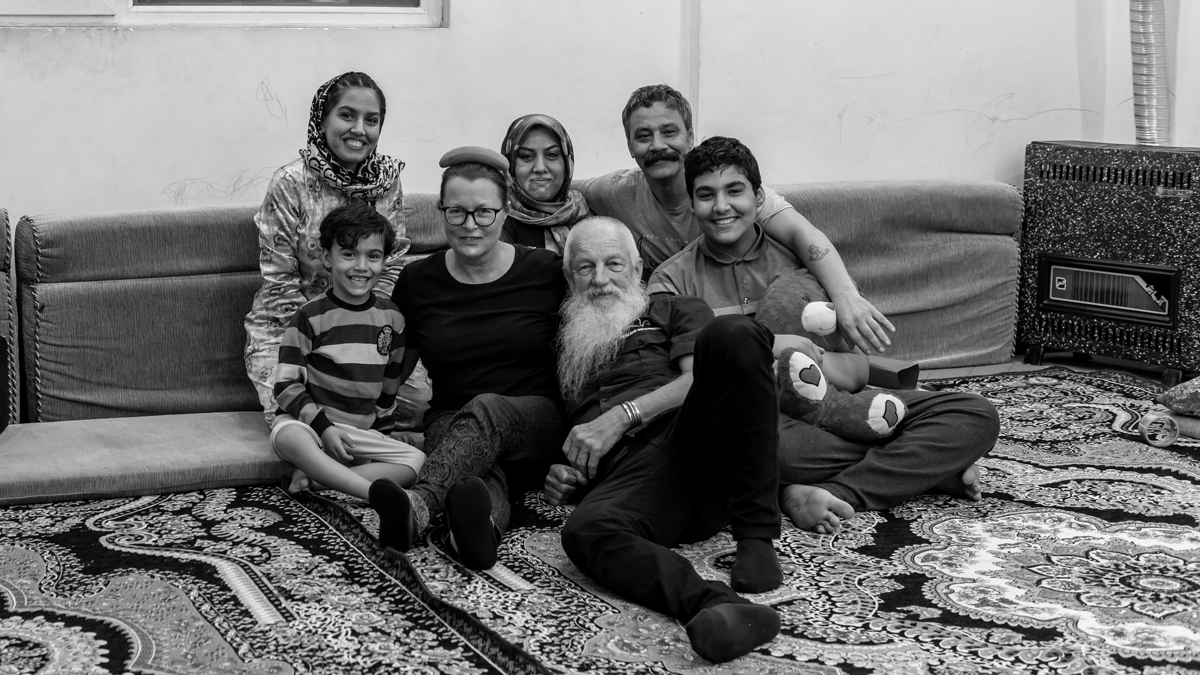
A young Iranian woman from Ahvaz invited us to come to her city via Insta and wanted to show us her city and her family. Since Ahvaz was only about a 100km detour, we were happy to accept the invitation. Since we didn’t know the exact address, we waited at the entrance to Ahvaz for the mother and daughter to come pick us up. The mother drove through the city very un-Iranian, thoughtfully and carefully. Her apartment was in a neighborhood that looked very run down. However, we then drove the car through an electric gate that led into a parking garage. The apartment was very large. In addition to her parents, the daughter’s older brother and her little brother also live in the apartment. We were welcomed into family life, which, in a very Persian way, always took place on the carpet. Even preparing the food takes place on the floor, although the kitchen was very well stocked. In the afternoon the father went to work, the daughter went to dance class, the big brother went out and the mother prepared food. Gabi was allowed to help; I took a nap. In the evening we went into the city and the family showed us the places they thought were worth seeing. After we returned, we had to fight to ensure that we could sleep in Globi and not in their apartment. It was enriching to get a glimpse into the daily life of a normal Iranian family and further proof of the uncanny hospitality of Iranians.
Technology Pitfalls
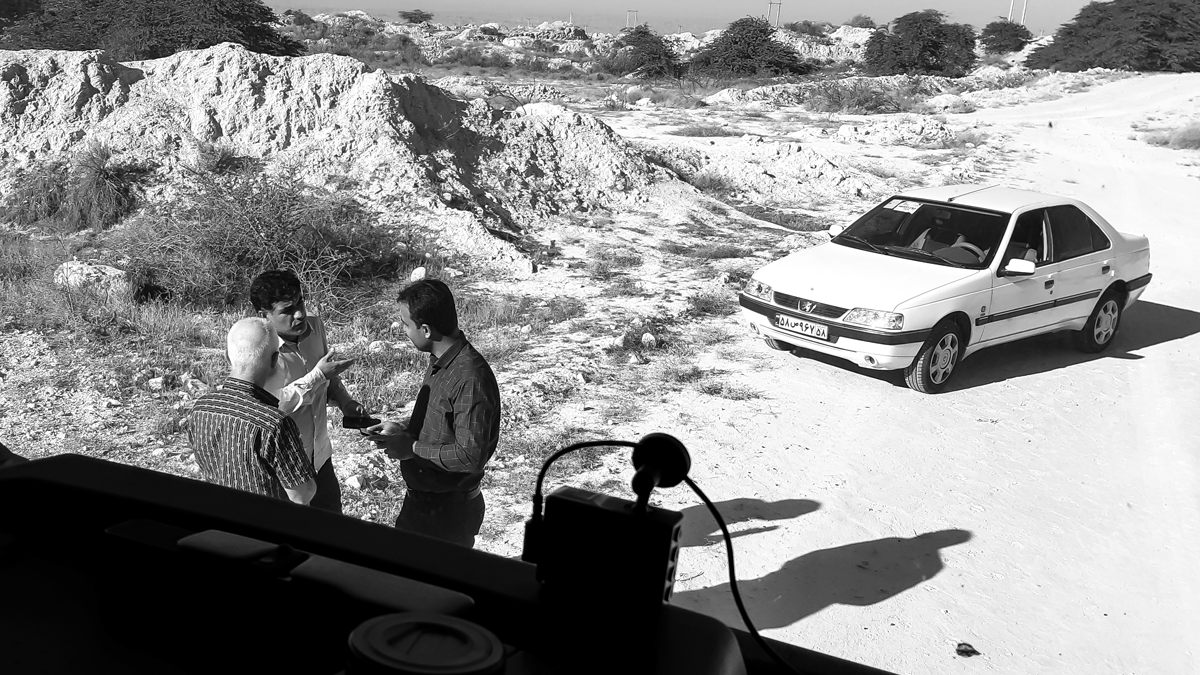
The Iranians’ technique of total control is also reflected in the number of police checks. It has an awful lot of them. As tourists, we are usually waved through at roadside checks. But if we are standing somewhere to set up camp and are seen from the street, then it can get very unpleasant. The police then arrive and want to see the IDs, which is understandable, and we always comply immediately. But after that it becomes difficult as usually no policeman can speak any English and that means that always several vehicles come and suddenly, we are surrounded by about twenty people. The first thing they always try to do is make us believe that this is a military area or is somehow unsafe. If we don’t believe either, the operation will last two to three hours with endless phone calls to important officials and interpreters, then they will leave without having accomplished anything. Our intransigence, attrition tactics and, above all, sometimes angry shouting always led to the goal at some point.
For a smile
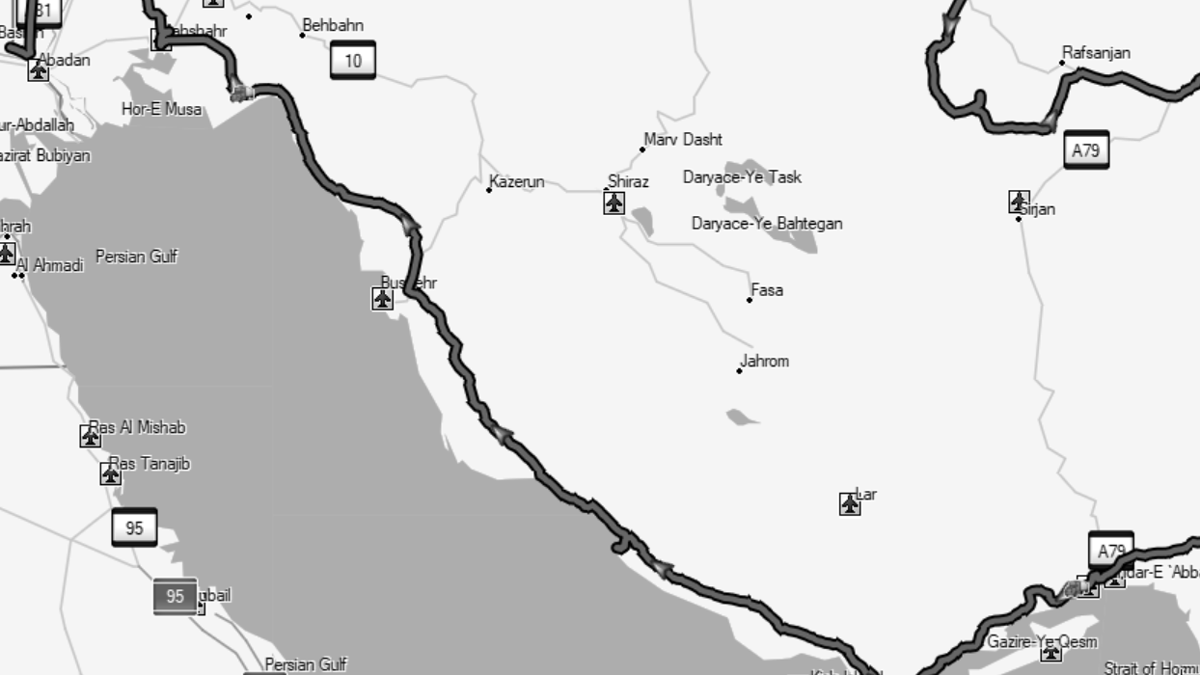
Our plan was to leave Iran in Bandar Abbas by ferry towards Emirates. We knew from many reports and the internet that the ferry existed and worked. When we drove towards Bandar Abbas, we discovered that the ferry is only designed for cars with a maximum height of 2.2m. The ferry from Bandar Lenghe would be a replacement option, but the ro-ro ferry for bigger vehicles no longer runs since Corona. We had to rethink and be flexible. So, we took the detour of 2,400km via Iraq, Kuwait and Saudi Arabia to the Emirates. These experiences you can read in the next notes.






Leave A Comment